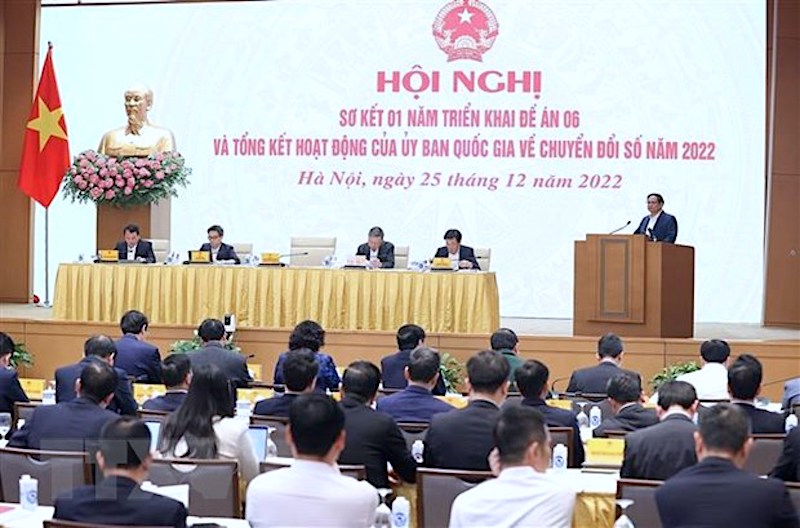Vietnam to build national data center in 2023: Prime Minister
Digital transformation is a new and challenging issue that requires innovative thinking, strategic vision, and fostering self-reliance, solidarity, and creativity.
Prime Minister Pham Minh Chinh has urged ministries, sectors and localities to promote data integration and sharing in order to build a national data center in 2023.
Prime Minister Pham Minh Chinh, Chairman of the National Committee for Digital Transformation, said on December 25 in Hanoi at a conference to take stock of one year of implementation of the project on the application of population data, electronic identification and authentication for national digital transformation in the period 2022-2025, with a vision to 2030 (Project 06).
| An overview of the conference. Photo: VNA |
"2023 will be the year of digitization and data sharing between ministries, branches, and localities to provide better services to citizens and businesses," the Prime Minister said.
He stressed that it is necessary to address security holes, information disclosure, and personal data protection as soon as possible.
According to the Prime Minister, the implementation of the project faces a number of shortcomings, such as incomplete national digital infrastructure and limited resources for digital transformation, as well as a lack of mechanisms and policies to promote digital transformation.
In addition, there is a big gap in the digital transformation between urban and rural areas, with nearly 270 villages and hamlets still having no access to electricity and mobile network. Some provinces and cities lack an overall and long-term vision concerning digital transformation.
"Digital transformation is a new and challenging issue that requires innovative thinking, strategic vision, and the fostering of self-reliance, solidarity, and creativity," Chinh said.
He requested that national and specialized information systems and databases be connected to the Government Information Center for management and operation.
As the project identifies some major groups of tasks and solutions with a roadmap for each in 2022 and 2023-2025, with a vision to 2030, Chinh wanted the relevant agencies to focus on completing the online delivery of 53 essential public services.
Vietnam strives to grant 40 million electronic identification (e-ID) accounts by the second quarter of 2023. The Ministry of Public Security should continue to improve the implementation of electronic identification and authentication (VNe-ID) and integrate essential services to replace citizenship-related documents.
Chinh required the Ministry of Information and Communications and network operators to expand mobile coverage to all regions of the country, especially remote and border areas and islands.
"2023 will be a year of data formation and exploitation to create new values," Chinh said.











